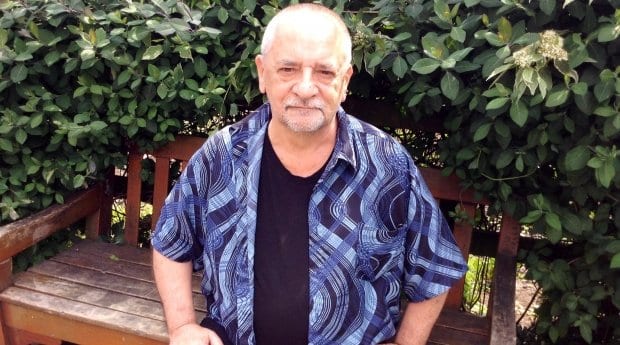St Paul’s Hospital’s Ward 10C, opened in 1997 at the height of the HIV/AIDS epidemic in Vancouver, will no longer serve as a dedicated AIDS ward. It is instead being repurposed to serve people living with the virus and related illnesses, the BC government announced May 27.
Dr Julio Montaner, director of the BC Centre for Excellence in HIV/AIDS at St Paul’s, tells Xtra he recommended the change. “I actually challenged my administration to consider this approach about 18 months ago, based on the data we had available,” he says.
“We have worked hard to make this day happen, and I commend everyone who has supported our efforts,” he told reporters. “It was not that long ago that HIV/AIDS was a death sentence and those who came to this ward at St Paul’s were here to die.”
Montaner says BC saw the peak of the epidemic in 1994 and 1995, with 650 to 700 cases per year. After 1996, he says, there was a dramatic decline in new AIDS cases, going down to 200 or 300 cases per year. With the implementation of the treatment-as-prevention strategy, new AIDS cases decreased steadily until 2012, when less than 50 cases a year were recorded.
“Our AIDS war over the last four or five years became basically the domain of people — most often infected by HIV — but who are requiring in-hospital support for other issues that were non-AIDS-related,” he says, “whether it was related to infections because of substance use or injection drug use, longevity-related things, or adverse reactions to medications.”
Montaner says these developments led to the thinking that it was inappropriate to label 10C an AIDS ward when fewer than 10 percent of the people who are admitted to it have an AIDS-related diagnosis.
“This is actually more and more a ward to address the longevity-related issues that emerge among people who are either affected or at risk for HIV,” Montaner explains. “Today, Ward 10C will provide treatment, support and care for those living with HIV-related issues.” Part of the idea, he adds, is to further destigmatize HIV.
A Ministry of Health statement says that Ward 10C’s new focus will include treatment of bacterial and viral infections — for example, chronic hepatitis — related to addictions.
“What we were advised is that it was a rebranding of 10C,” John Bishop, chair of BC’s Positive Living Society, tells Xtra. “If someone is HIV-positive and they need to get into the hospital, 10C is still an option for them; it will still be the home ward for people living with HIV and AIDS.”
Bishop notes that the existing designation for the ward “was just simply people who have conditions with HIV and conditions with AIDS.” But, he points out, the demographic of the disease is changing. “We’re seeing a lot more active drug users involved in this disease,” Bishop says, echoing Montaner that the ward is seeing more patients with addictions.
He says Montaner’s announcement is a recognition of the changing role that 10C has had over a number of years.
Bishop says there’s no connection between the ward’s new configuration and the approach to gay men’s health. “I don’t think we can relate these at all,” he stresses. “The staff on 10C are specifically trained to deal with patients in crisis over their HIV diagnosis.”
Wayne Robert, executive director of the Health Initiative for Men (HIM), says the change reflects how effective the approach to addressing AIDS has been. “The impact of that disease has been reduced,” he says, though he notes that issues remain regarding HIV-related infections.
Robert says the new approach being taken is more complex, not only looking at HIV or AIDS, but at other factors, such as homophobia, stigma and poverty, that can also affect a person’s health.
“I’m kind of hoping that this reflects the determinant approach,” he says. “I’m hoping we’re looking at all of those things and how they all work together to impact the HIV epidemic as well.”


 Why you can trust Xtra
Why you can trust Xtra


